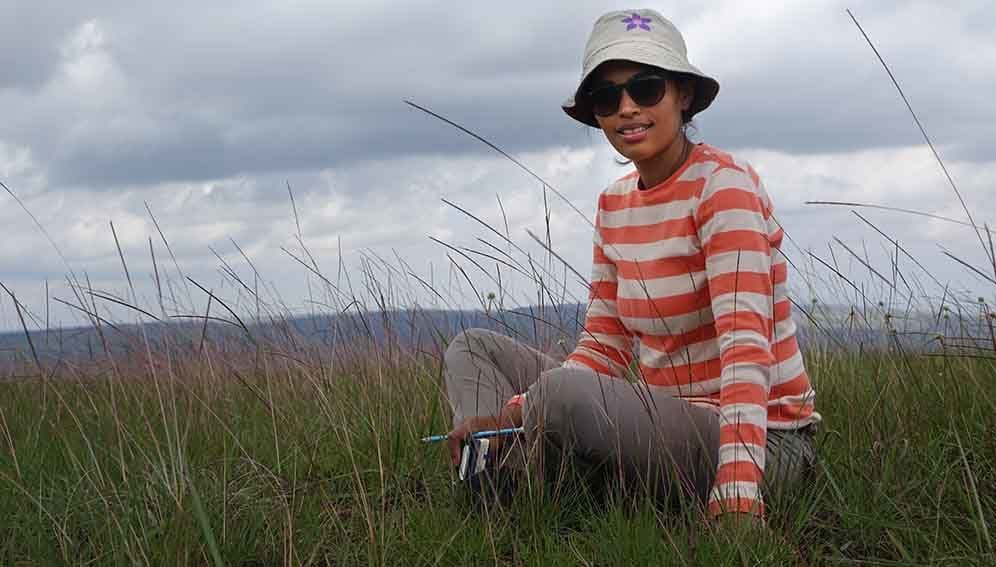Send to a friend
The details you provide on this page will not be used to send unsolicited email, and will not be sold to a 3rd party. See privacy policy.
From the perils of tree planting to teaching robots in the Andes, SciDev.Net has announced the winners of its first global journalism awards in recognition of the impactful contributions of its writers in a year marked by unprecedented challenges.
The awards were launched last year in order to recognise the work of SciDev.Net’s contributors around the world.
“The high quality of these articles is a great testament to the work we are doing at SciDev.Net,” said managing editor Ben Deighton.
“Winning the award for this piece was of special importance to me, as it revolves around one of the most promising vaccines, the Oxford-AstraZeneca vaccine,”
Hazem Badr, global journalism award winner based in Egypt
The winners were chosen by SciDev.Net’s Editorial Advisory Group, based on a shortlist drawn up by SciDev.Net editors.
Winner of the best news article went to Zoraida Portillo for her story Robots help learning in a time of COVID, about the use of robots to teach children in remote parts of Peru during the COVID-19 lockdown.
The judges described it as “a touching story of impact and innovation that encapsulated the best of SciDev values: entertaining, motivating and inspiring, with personality and human insight”.
“The message is very relevant not only to the Andes rural locations that benefited from the robot but to children all over the world struggling to get a proper education under lockdown,” they said.
Runners up were Syriacus Buguzi, of Tanzania, and SciDev.Net deputy editor, features, Fiona Broom, for their collaborative story New malaria mosquito threatens mass outbreaks in Africa.
“From original reporting on the dangers of gender-blind coronavirus policies and the restrictions on Palestinian researchers, to innovative methods to help patients find their medicines in pharmacies, the high quality of the news article of the year submissions was particularly strong,” the judges said.
Winner of the best feature category, and the overall winner, was UK-based journalist Aisling Irwin, for her SciDev.Net Investigates story on the adverse impacts of poorly planned tree planting campaigns.
Global tree pledge frenzy threatens ancient grasslands provided an “absorbing, deeply researched and excellent treatment of a complex and controversial subject, told extremely well”, the judges said.
Irwin said she was “delighted to win this because it shows what can happen when you give journalists the opportunity to dig deep”.
“There are powerful reasons why the world should be obsessed with planting trees, but indiscriminate planting is widespread and causing many problems – to livelihoods, to ecology and even to the central cause of drawing down carbon,” she said.
“The plight of the world’s unloved grasslands seemed to encapsulate many of these troubles. The detective work of Madagascan ecologists investigating the riches that lie between the grass blades and in the soil below […] proved to be a great way of telling the story.”
The judges said: “With its deep reporting and bold counter-intuitive message, Aisling Irwin’s article was a compelling expression of SciDev at its best. A thoroughly deserving winner.”
Runner up in the features category was Indian journalist Sanjeet Bagcchi for his article Asia Pacific’s runaway white elephant projects, about exorbitant Asian infrastructure projects that have failed to get off the ground.
Hazem Badr, of Egypt, received the prize for the best interview with his Q&A with a member of the Oxford vaccine team, creators of the COVID-19 vaccine, in July 2020. The interview, conducted via the videoconferencing platform Zoom, was published on SciDev.Net’s Arabic language edition.
“Winning the award for this piece was of special importance to me, as it revolves around one of the most promising vaccines, the Oxford-AstraZeneca vaccine,” Badr said.
“It was a few months after the start of the pandemic, so this dialogue was very appropriate and […] greatly contributed to the knowledge of the Arab scientific community.”
The judges said: “Topical and well-timed, long before the approval of the vaccine, this interview gave voice to a scientist from one of SciDev’s core regions […]. It offered scope for strong impact in combating vaccine hesitancy and in answering people’s common questions about the vaccine trials, with answers still relevant today.”
Badr was also runner-up in the multimedia category for his photo story, Egypt’s shrimp women. Top prize for that category, however, went to Ghislaine Deudjui and Julien Chongwang, of Cameroon, and Gilbert Nakweya, from Kenya, for their report on toxic food preservatives, Poison used to conserve food in Africa.
“Congratulations to all winners, runners-up and shortlisted entries, and many thanks to all of those who helped put together these awards,” added Deighton.




